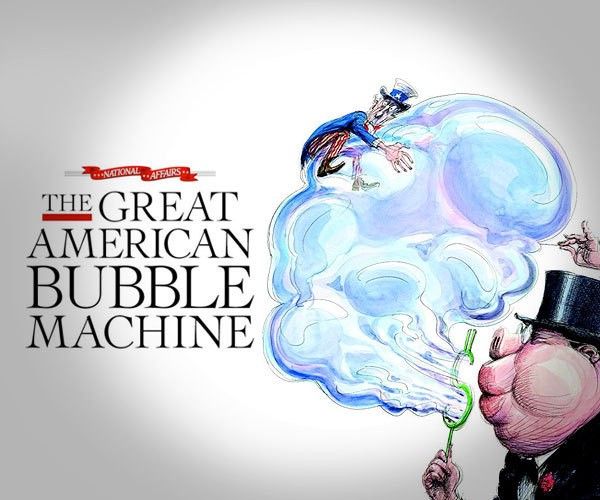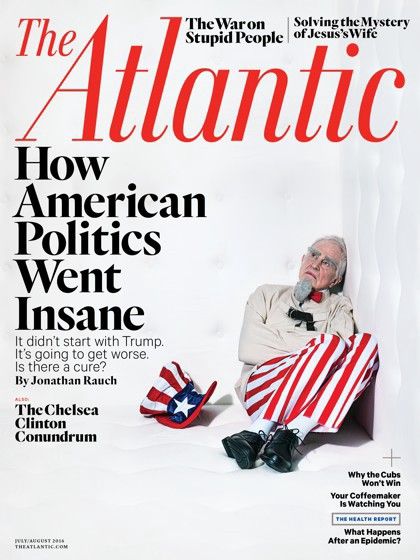For years, now, I’ve had this deep-seated misgiving about the idea of disintermediation.
I say this as someone who has built a career in an area of technology the entire value of which is predicated upon the notion of disintermediation. I have spent my days writing op-eds on how the removal of brokers from the world of institutional finance will cut costs for investors. I have conducted research on how people use technology to bypass the intermediaries that normally control flows and custody of money. I have worked with companies building products that aim to remove rent-seeking middlemen from transactions of all kinds.
It’s easy to get on board with the idea of disintermediation. The idea of the privileged gatekeeper runs contrary to our coveted notions of meritocracy, individualism, and even freedom. In recent decades, the fat middleman has often been the enemy, the final boss. There was the financial intermediary, the vampire squid, that brought the world to its knees in 2008. More recently, the scrutiny has turned to the keepers and arbiters of our data, the intermediaries we have trusted with — more than our money — the intimate details of our thoughts, our fears, our desires and psychoses. And these intermediaries too have lived long enough to become the villain.

And this is not even to mention politics. Not since the open outcry democracy of Athens have politicians and their people interacted so directly. In the 1930’s, FDR delivered his first radio “fireside chat” that was, of course, less chat and more monologue. Almost 100 years later, we have replaced the one-way radio broadcast with the multi-party chaos of social media. Twitter has become the medium through which presidents, prime ministers, and policy-makers not only deliver messages, but also try ideas, test slogans, galvanize their followers, and whip their detractors into an intentional and orchestrated fury that is designed to attract eyeballs and serve their own ends. The middlemen may be gone but in their place we have a cacophony of people shouting past each other. It was once the case that policy was made in wood-paneled, smoke-filled back rooms. They have now been replaced with the chaos of the public forum where anyone can participate just by logging in and opening their news feed.
The idea that political disintermediation has not been altogether good for the world is not new. This idea first resonated with me upon reading Jonathan Rauch’s zeitgeist 2016 Atlantic article, “How American Politics Went Insane.” Rauch tells a compelling story of how our well-intended desire to reform the political system away from entrenched institutions and power brokers has inadvertently ushered in an era of chaos. We have dismantled the political machine. We shouldn’t be surprised that now we have to pick up the pieces.

“Beginning early in the 20th century, and continuing right up to the present, reformers and the public turned against every aspect of insider politics: professional politicians, closed-door negotiations, personal favors, party bosses, financial ties, all of it. Progressives accused middlemen of subverting the public interest; populists accused them of obstructing the people’s will; conservatives accused them of protecting and expanding big government.”
But it turns out, without these political intermediaries, we are more polarized than ever and it’s harder than ever to get things done. To say that there are issues with where we have ended up isn’t even a partisan statement. It’s just true.
It is not only true of politics. In fact, I can’t think of an industry that has been untouched by this larger trend of individuals over institutions, of direct democracy over representative democracy, of disintermediation.
I think this theme of disintermediation is part of why “blockchain technology” — that elusive, nearly undefinable buzzword — has so captured the public imagination (mine included). It is certainly not the case that it has gained attention (and garnered capital) because it has delivered on its promises (at least not yet). Rather, its promises tap into something we as a society think we want: a disintermediated world, free of Monopoly Men and rent-seeking intermediaries, where everyone’s moves are transparent and verifiable and everything is beautiful and nothing hurts.

Of course we want this world. 2008 in particular showed us just how broken a world run by brokers is. The middlemen, be they bankers or internet executives or policymakers, never had our best interests in mind. By and large, these middlemen have looked out for themselves (and their shareholders). But in so doing, they have also served another important function: they have looked out for the system. They have kept the amplitude of our oscillations within reasonable bounds. They have made sure that the system, however broken, is at least around to serve another day.
I think twice about the utopian ideal of disintermediation and I think you should too. When all the vampire squids have gone extinct and Rich Uncle Pennybags is dead and buried, we may look back and wish we had once more the sense of order they provided. We may long for the days when our enemies were so easily defined.